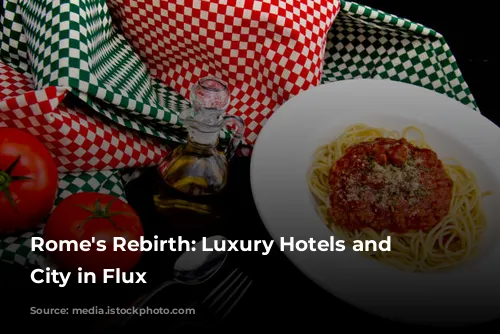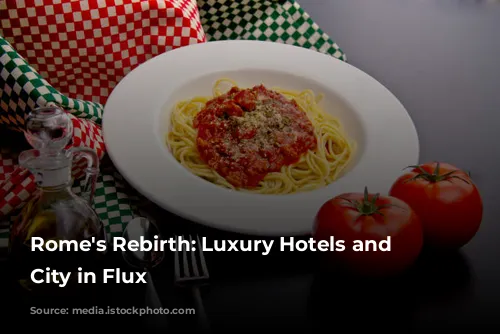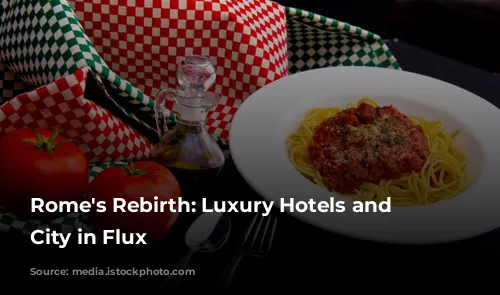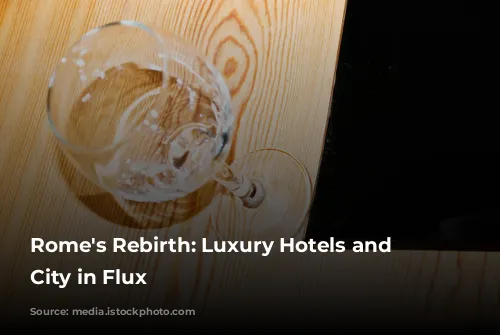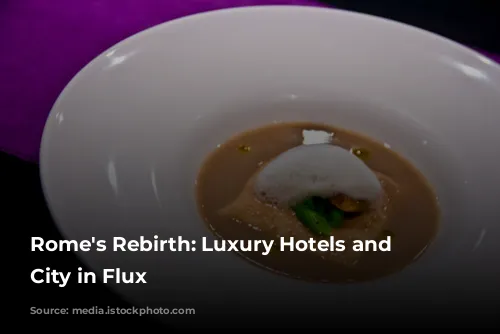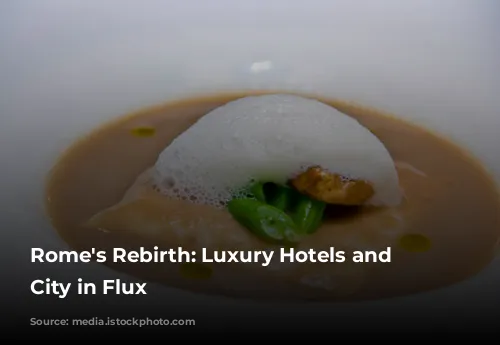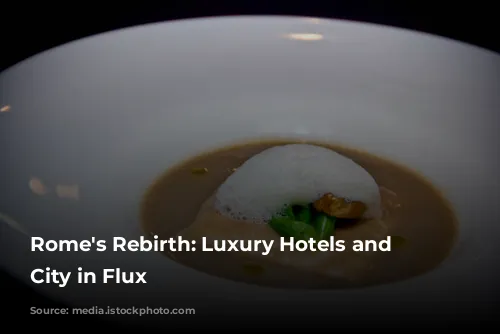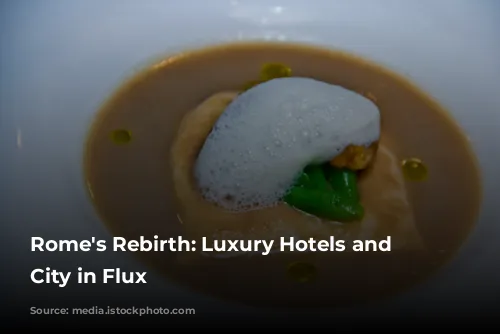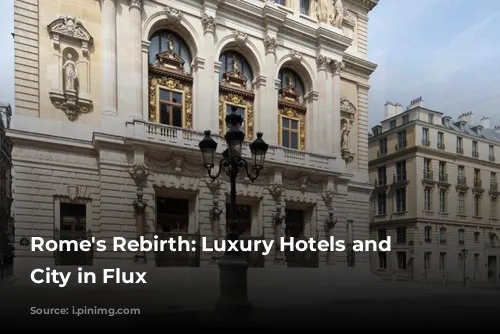A wave of opulence is sweeping through Rome, transforming the city’s landscape with a surge in luxurious hotels. This influx of high-end accommodations has ignited debates about the city’s future, leaving some optimistic about its revival while others are concerned about the potential consequences.
A City of Contrasts: Luxury Blooms Amidst Tradition
Giuseppe Botrugno, owner of the modest Bar San Marcello, has witnessed the changing face of his neighborhood. The historic Via di San Marcello, once known for its simple Roman fare, is now home to opulent five-star hotels.
The Palazzo Salviati Cesi Mellini, a majestic 15th-century building, has been reborn as the Six Senses, the first Italian location for the renowned chain. Meanwhile, the Umiltà 36, a Shedir Collection hotel, stands proudly in another ancient complex. Even the former headquarters of Rome’s foreign press association is set to be replaced by yet another five-star gem.
While Botrugno welcomes the revitalization of neglected buildings, he wonders if the city’s soul might be overshadowed by the relentless pursuit of luxury. He acknowledges the inevitable influence of money, but questions whether this direction truly benefits Rome’s essence.
A Magnet for the Elite: Rome’s Luxury Boom
Rome’s success in attracting luxury hotels is undeniable. In 2023, the Italian capital claimed the second spot after London, according to Luxury Travel Intelligence. This surge is fueled by the recent opening of a Bulgari hotel, accompanied by a star-studded celebration. An additional 13 luxury hotels are on the horizon, including a Four Seasons, partially owned by Bill Gates, and the Robert De Niro-backed Nobu Hotel Roma.
This influx is seen by some as a sign of Rome’s resurgence, a city regaining its allure. Mayor Roberto Gualtieri highlights the city’s renewed attractiveness, while urban planning councillor Maurizio Veloccia emphasizes the return of high-end interest since the golden era of the dolce vita.
Rome’s tourism numbers soared in 2023, exceeding pre-pandemic levels. This surge, attributed to a renewed desire for experiences after the pandemic and events like the Ryder Cup, has undoubtedly fueled the luxury hotel boom.
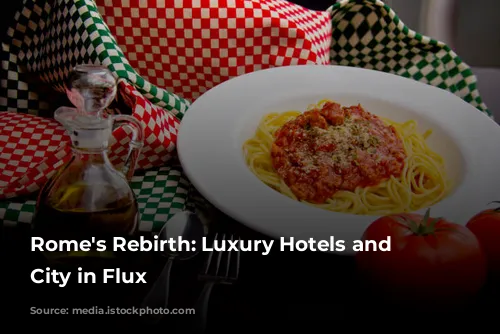
A Double-Edged Sword: The Price of Luxury
Despite the positive aspects, not everyone is thrilled about Rome’s luxury makeover.
Vanna Mannucci of Italia Nostra expresses concern about the displacement of residents and small businesses from the city center. She fears that the city might lose its soul if it becomes solely a playground for the wealthy, leaving behind those who cannot afford the exorbitant prices of high-end hotels.
Her colleague, Riccardo D’Aquino, shares similar concerns about the alteration of historic buildings to cater to luxury tastes, citing the Six Senses’ Roman-style baths constructed on the first floor. While acknowledging the importance of tourism, he worries about the lack of a sustainable approach to these changes.
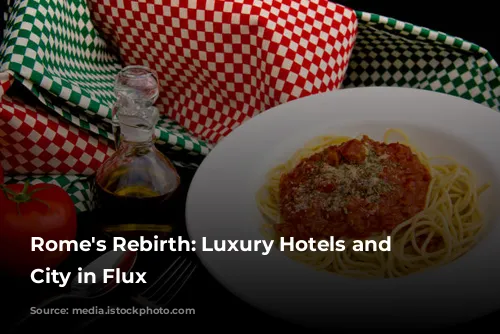
A Divided City: The Discontent of Smaller Businesses
The influx of luxury hotels has also sparked resentment among owners of smaller hotels and businesses.
Steve Brenner, owner of the Beehive hostel, feels that international investors are given preferential treatment, receiving permits more quickly than smaller establishments. He criticizes the lack of support for smaller hotels, which he believes are crucial to Rome’s economy, while the city struggles to provide the infrastructure needed for high-end service.
Sergio Franci, owner of Antica Stamperia Trevi, a printing shop that has stood on Via dell’Umiltà since 1780, while welcoming the luxury hotels, calls for greater attention to preserving Rome’s historic businesses.
Rome faces a critical juncture. While luxury tourism brings economic benefits, it’s crucial to ensure that the city’s heart and soul remain intact. Balancing the allure of high-end experiences with the preservation of its cultural heritage is a challenge Rome must address for a sustainable future.
